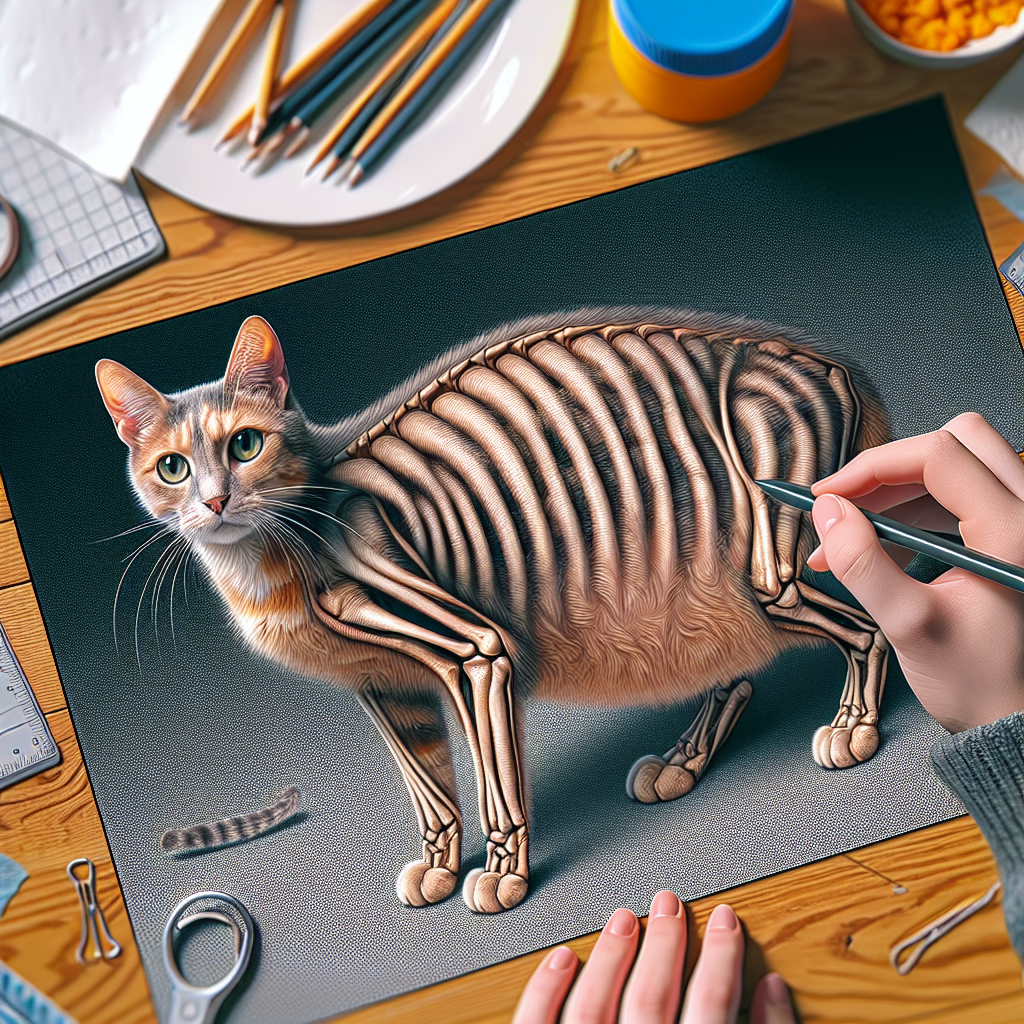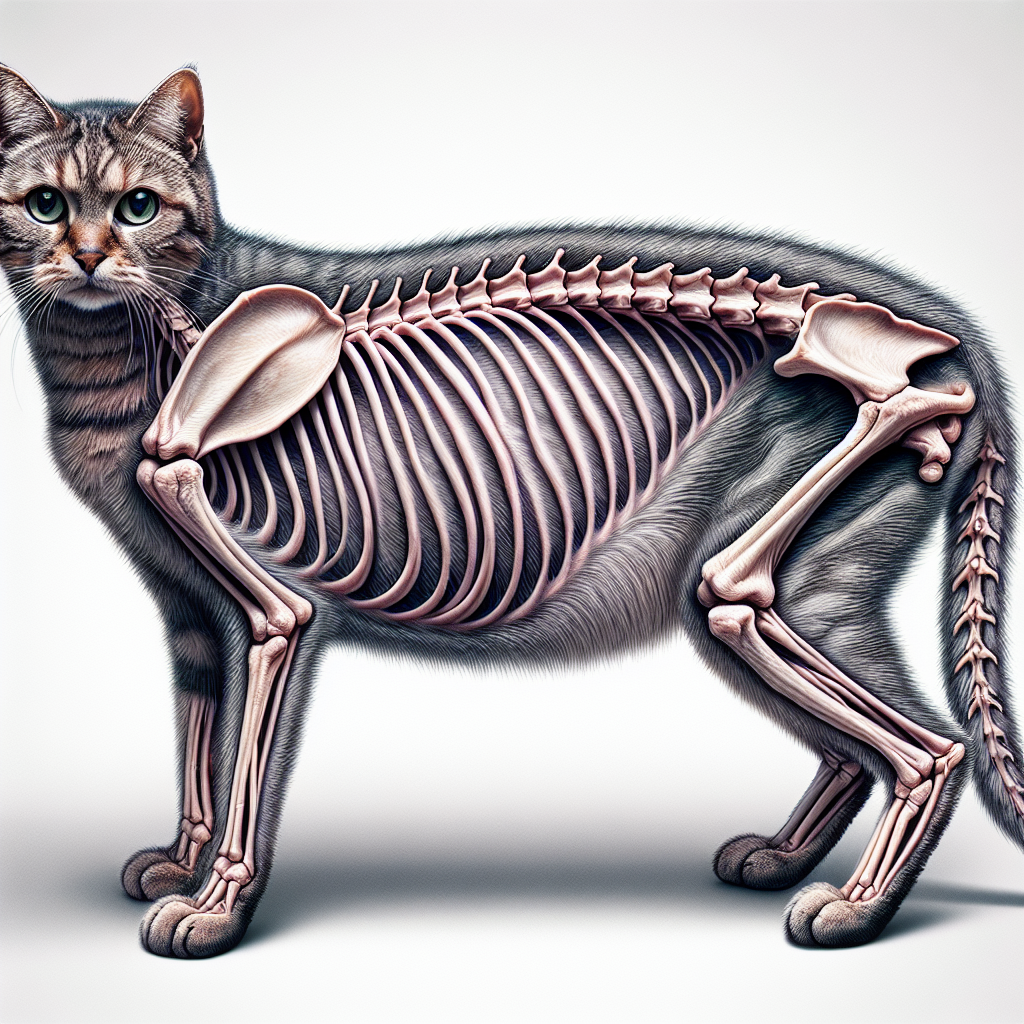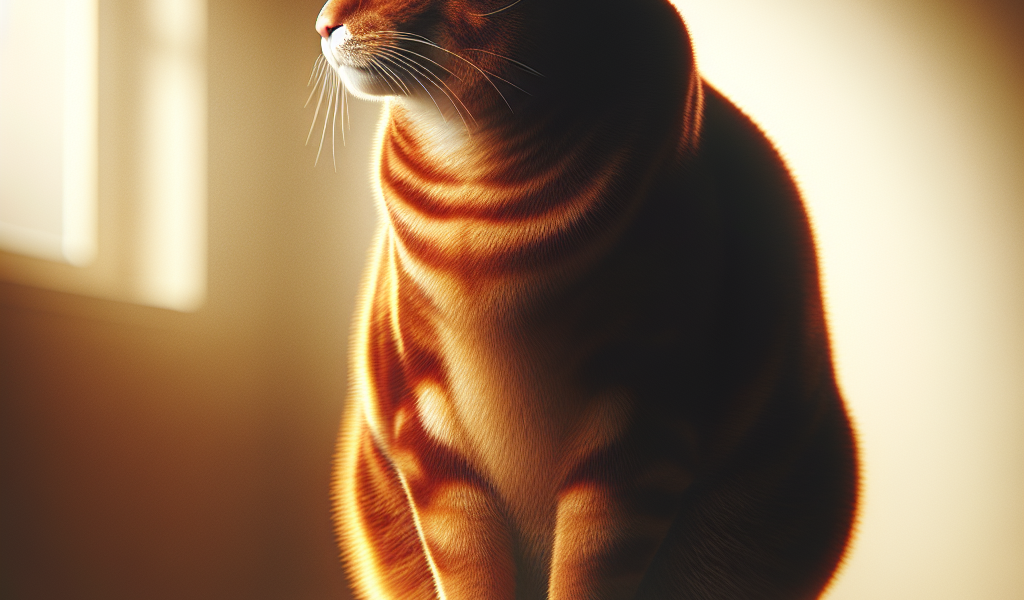Understanding When to Worry About Weight Loss in Cats
You are about to embark on a journey that will help you understand one of the most challenging aspects of being a cat owner: knowing when to worry about your feline companion’s weight loss. The article “Understanding When to Worry About weight loss in cats” unpacks this often-misunderstood topic, dispelling myths and offering practical advice to help you discern when weight changes in your cat may signal an underlying health issue. Emphasizing the importance of maintaining a healthy weight for your beloved pet, this piece shares key insights on recognizing the signs of potential problems early on and seeking timely veterinary care.

Understanding Cat’s Normal Weight
Just like humans, every cat has its own unique average weight. This depends on several factors like the age and the breed of your furry friend.
Defining average weight through age
Typically, kittens weigh about a few ounces at birth and may double or triple in their weight during the first few weeks. As they grow older, their weight gain is more gradual. By the time they reach one year, they should be near their adult weight, which generally falls between eight to ten pounds.
Differentiating weight by breed
But bear in mind, these numbers can alter significantly based on the breed. Just as you’d expect, larger breeds like Maine Coons might weigh upwards of 20 pounds, while smaller breeds like Siamese cats typically clock in under ten pounds.
Considering the impact of neutering on weight
In case you didn’t know this, neutering your cat can also impact its weight, as it tends to slow down a cat’s metabolism. This is something you might have to take into account when defining what’s normal for your cat.
Causes of Weight Loss in Cats
If your cat seems to be losing weight, there can be a host of factors to consider.
Cat’s dietary changes
A change in their diet or eating habits is often the first thing to look at. Pay attention if you’ve recently switched brands or if your cat’s appetite seems to have diminished.
Impact of age on cat’s weight
Just as with us humans, a cat’s weight will naturally fluctuate as they age. Older cats may have a harder time digesting their food, which might be contributing to their weight loss.
Diseases leading to weight loss
Certain illnesses can lead to weight loss in cats. Watch for other symptoms like lethargy, vomiting, changes in fur, or unusual behavior.
Influence of seasonal changes
Even the time of year can play a part. Like many animals, cats tend to shed weight in warmer months and put it back on in the winter.

Simple Indications of Weight Loss
It’s crucial to be aware of the signs of weight loss in your cat, which might be subtle at first.
Identifying visible changes in cat’s body
A noticeably thinner torso or a protruding backbone or ribs can indicate weight loss. Sometimes, your hands can tell you more than your eyes, so make sure to regularly pet your cat all over to feel for changes.
Decreased body mass index
If your cat seems lighter or if you suspect your cat to be losing muscle mass, it may be a cause for concern.
Noticing lesser energy levels
Another key sign to look out for is a decrease in your cat’s energy levels or changes in their behavior.
Complications Arising due to Weight Loss
Weight loss in cats can lead to other health problems if it isn’t addressed.
Dental problems
Weight loss can sometimes cause dental issues as the cat might be avoiding food due to mouth pain.
Kidney conditions
Weight loss is also a common sign of chronic kidney disease in cats.
Depression and anxiety
Like humans, cats can show physical symptoms, like losing weight, due to emotional stress or upheaval.
Weakened immune system
Long-term, serious weight loss can also weaken your cat’s immune system, making it more susceptible to infections and diseases.

When to Worry about Your Cat’s Weight Loss
Certain indicators should immediately prompt you to consult a vet:
Rapid weight loss
If your cat loses more than 10% of their total body weight, this should be a red flag.
Diminished appetite
If your cat’s eating habits have markedly changed, it’s well worth the concern.
Changes in behavior
Erratic behaviors paired with weight loss can indicate underlying issues like dental pain or illness.
Unexplained lethargy
If your cat seems overly tired and is losing weight, this can be a symptom of an underlying medical issue.
Persistent vomiting or diarrhea
These symptoms combined with weight loss are a call for immediate veterinary attention.
Preventing Weight Loss in Cats
Preventing weight loss in your cat is all about maintaining a healthy lifestyle.
Maintaining a balanced diet
Ensure your cat has a well-balanced diet that meets all its nutritional needs.
Importance of regular physical activities
Regular physical activity is also integral. Get them toys or engage with them yourself to keep them moving.
Routine health check-ups
Regular vet visits for general check-ups can help identify potential issues early on.

Role of Proper Nutrition in Cat’s Weight
Understanding what kind of nutrition your cat needs is incredibly important in maintaining a healthy weight.
Understanding a cat’s nutritional needs
Your cat’s diet should be rich in proteins and contain the right balance of carbohydrates and fats. They require a range of vitamins and minerals that are vital for their health.
Giving right portion sizes
Cats tend to graze throughout the day, so be aware of how much food you’re leaving out. Overeating can lead to weight gain, so portion control is critical.
Choosing quality cat food
When it comes to cat food, quality truly matters. Always opt for reputable brands that offer balanced and complete diets.
Understanding the Vet’s Role
Your vet is your partner in managing your cat’s weight and overall health.
Performing regular health examinations
Regular health examinations enable your vet to monitor your cat’s weight and look out for any potential problems.
Using weigh scales to track progress
Your vet can accurately weigh your cat during the visits to help track proportional weight changes.
Discussing diet plan with the vet
Your vet can also provide personalized nutritional advice to ensure your cat’s diet meets its needs.
Treatment options for excess weight loss
If your cat is losing a concerning amount of weight, your vet might recommend specific treatment plans, from adjusting their diet to considering medication or other interventions.

Handling a Cat’s Loss of Appetite
When your cat’s appetite decreases, there are a few things you can do before taking them to the vet.
Things to try when your cat won’t eat
You can try different types of food or warm it up a bit to make it more appealing. This can sometimes be enough to tempt a picky eater.
When to consult a vet
However, if these efforts fail and your cat continues to refuse food, you should immediately consult your vet.
Potential treatments for loss of appetite
Your vet can suggest potential treatments, such as appetite-stimulating medications or feeding trials with specific diets.
Coping with Serious Health Conditions
Dealing with your cat’s serious health condition can be extremely challenging.
Managing diseases causing weight loss
Keeping up with regular vet visits, medications, and observations can help manage diseases causing weight loss.
Providing palliative care
In some cases, maintaining quality of life might involve palliative care, which focuses on managing symptoms and providing comfort.
Interpreting cat’s discomfort
Understanding your cat’s behavior and learning to interpret signs of discomfort can help you make their lives easier.
Making difficult decisions about euthanasia
In unfortunate circumstances, when suffering becomes too great, it might be time to discuss options like euthanasia with your vet. Euthanasia is never an easy decision, but sometimes it’s the kindest one.
Remember, you’re not alone in this journey. Regardless of the reasons behind your cat’s weight loss, your veterinarian is there to guide you through this process, offering expertise and support along the way.

